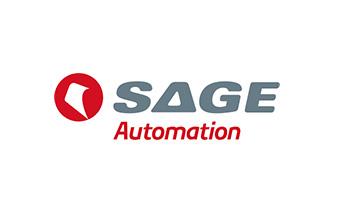Project Summary
Tobruk Engineering Pty Ltd in partnership with Flinders University, Lifecare Australia Pty Ltd, and Sage Automation Pty Ltd has been awarded an ARIIA grant for their project ‘Introduction of a cost-effective handsfree transfer system to the RAC sector to reduce staffing levels, injuries and patient discomfort’.
Tobruk Engineering seeks to introduce a significant technological innovation into multi-user Residential Aged Care Facilities which incorporates a transfer system and integrated shower/day chair. The transfer system will enable a single operator to transfer a client from the bed to the chair with minimal physical input, does not require the use of any lifting devices, and provides a safe and stress-free transfer for the client. The system will also enable a single carer to reposition the client within the bed, again with no lifting required.
This system will significantly reduce the time and resources required to transfer or reposition clients, whilst also minimizing the risk of injuries.
Project Outcomes
Background and Aims
This project tackled one of aged care’s most persistent challenges—safely moving frail individuals without placing carers at risk. The Behn Transfer System was developed to offer a dignified, no-lift, single-carer transfer solution that supports care in both home and residential settings. The primary aim was to create a solution that reduces injury risk for carers while promoting autonomy and dignity for care recipients.
What We Did
The team developed and refined a powered, modular bed-based transfer system in close collaboration with aged care professionals. Throughout the project, significant efforts were required to navigate changes in partnerships and engineering specifications. System testing and refinement were completed alongside the creation of user resources and training tools. Engagement with allied health professionals helped ensure the system met real-world expectations. The result was a fully validated solution, ready for aged care deployment.
Outcomes
The Behn Transfer System is now a commercial-ready, no-lift transfer solution that has been successfully tested in real care settings. It has demonstrated significant improvements in manual handling safety, with strong positive feedback from physiotherapists, occupational therapists, and facility staff. The project also produced a full suite of operational and training materials and was completed on schedule in May 2025.
Impact on Aged Care and Workforce
The project represents a significant leap forward in carer safety, eliminating the need for physical lifting during transfers. This not only improves workforce wellbeing but may also enhance retention and job satisfaction. By supporting single-carer operation, the system enables safer aging at home and eases pressure on residential staffing. It directly supports aged care reform priorities such as dignity in care and workplace safety.
The Flinders University trial (2025), conducted at Opal Everard Park by the Medical Device Research Institute and approved by the Flinders University HREC (Attachment A: Flinders University Trial Report – 'Evaluation of the Behn® Client Transfer System'), confirmed the system’s usability and clinical value. While the average SUS score was moderate, qualitative responses demonstrated strong acceptance and positive user impressions, especially from carers who highlighted ease of use and comfort during transfer.
Resources Developed
Supporting resources include comprehensive operator and maintenance manuals, safety checklists, and ethics-approved trial documentation. A pre-production video demonstration has also been developed to support training and awareness. All materials will be available through the Behn website at https://www.behn.net.au.
Next Steps
Deployment of the system is scheduled to begin in the second half of 2025. A bariatric version is in early planning to extend usability to clients with higher support needs, while additional trials and sector presentations are planned to increase adoption. The project team will also engage commercial and clinical partners to expand the product’s reach into home and community settings.


